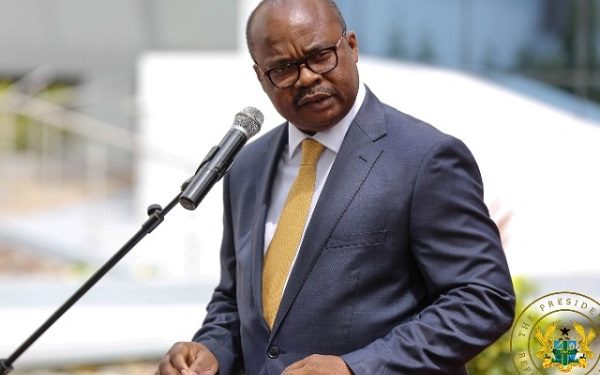Ghana’s ongoing fiscal and monetary stabilization measures, implemented in response to recent economic shocks, are yielding positive results, according to Dr. Ernest Addison, Governor of the Bank of Ghana.
This recovery is part of a broader effort in sub-Saharan Africa to stabilize economies after a period of turbulence. Dr. Stephen Opata, Advisor to the Governor, delivered a keynote address on Dr. Addison’s behalf at the WAIFEM/IMF Regional Course on Financial Programming and Policies.
Dr. Opata acknowledged the significant challenges faced by the region, particularly over the past four years, due to multiple shocks that impacted fiscal stability. Ghana, like many other countries in the region, was particularly vulnerable due to pre-existing debt vulnerabilities and limited policy space to respond.
To address these challenges, Ghana sought assistance from the International Monetary Fund (IMF) and implemented a Fund-supported program aimed at restoring macroeconomic stability. Key areas of focus included monetary policy, fiscal policy, and financial sector reforms.
The Bank of Ghana (BoG) played a crucial role in stabilizing the economy by tightening monetary policy to address rising inflation. This approach, combined with other measures, has helped to reduce price pressures and stabilize the currency.
Additionally, the government has implemented fiscal reforms to align with the IMF-supported program and promote sustainable growth. These reforms have contributed to a rebound in real GDP growth and a decline in inflation.
The banking sector has also recovered from the adverse effects of the Domestic Debt Exchange Programme (DDEP), with significant profits recorded in 2023. This indicates improved confidence in the sector and a stronger financial system.
Ghana’s gross international reserves have also increased, providing a buffer against external shocks. However, Dr. Opata cautioned that the recovery remains fragile and ongoing risks could threaten the gains made so far.
Despite these risks, the overall outlook for Ghana’s economy is positive. With inflation on the decline, growth rebounding, and the financial sector recovering, the country is well-positioned for a more stable economic future.
The focus now is on ensuring that the recovery is sustainable and that the necessary fiscal adjustments are made to rebuild buffers without jeopardizing growth. As the Bank of Ghana continues to implement its policies, Ghana is better-positioned to navigate future challenges and lay the groundwork for long-term economic resilience.


